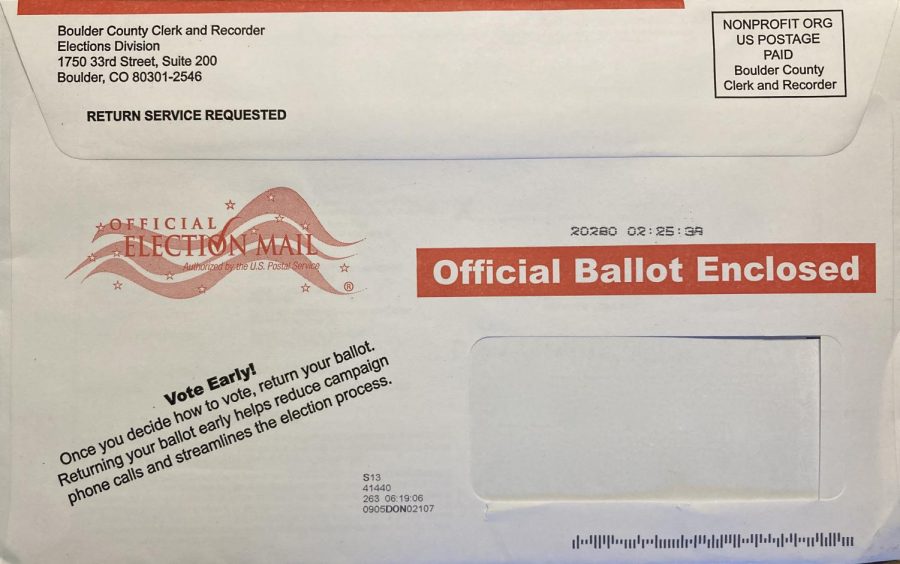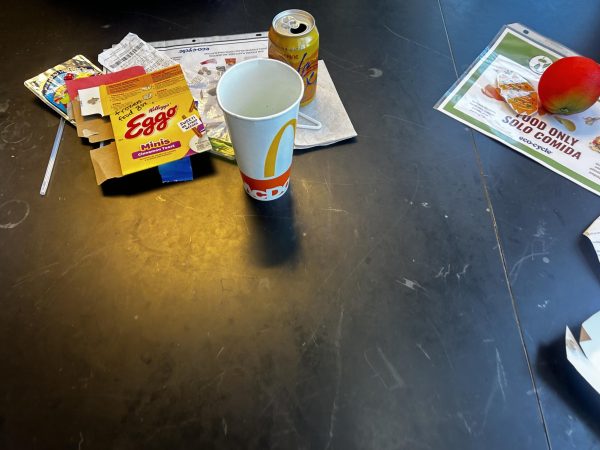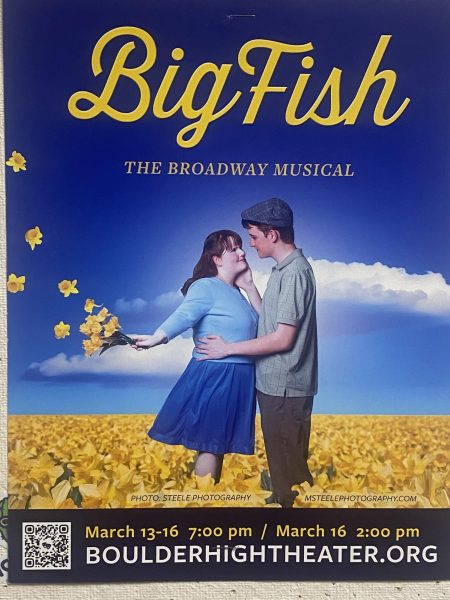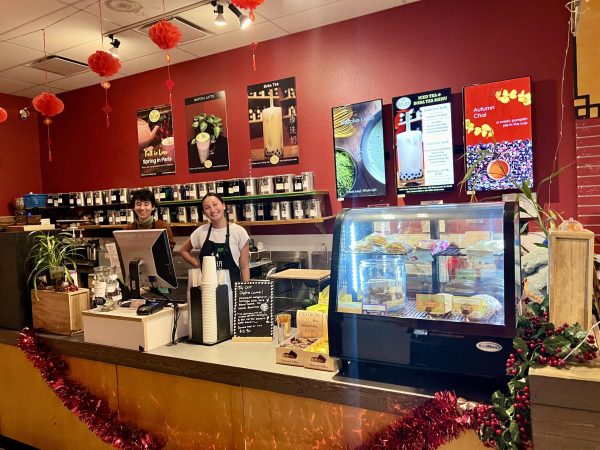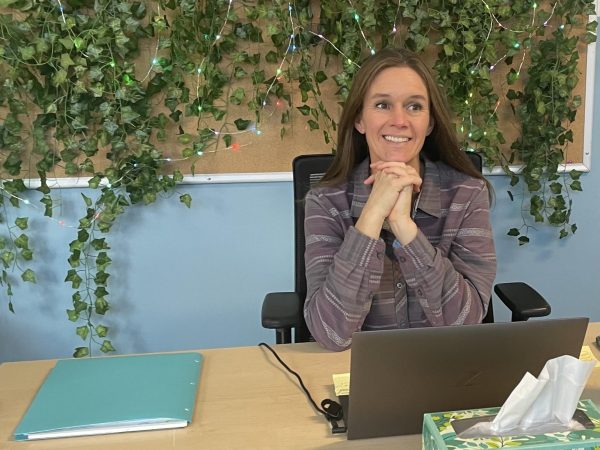Gen Z Gets Political
Young voters are rising to political power, but many Boulder High students aren’t eligible to vote in the 2020 election.
With the 2020 election fast approaching, voters are flocking to the polls and filling out their mail-in ballots.
My eighteenth birthday is six days before the 2020 presidential election. Thanks to the Colorado Votes Act, which allows all 17-year-olds who will be 18 by election day to vote in primaries, I’ve already collected three “I Voted!” stickers.
But I’m in the minority of Boulder High students whose political opinions will be officially heard on Nov. 3. The road to voting is a bumpy one for many Americans—securing their enfranchisement remains difficult for some, others face discrimination at polling stations and nearly all are confused by the electoral college—but casting a ballot remains one of the most certain ways to voice one’s beliefs in our country. Every election is wrought with anxiety and apprehension, but this one even more so; hailed as one of the most important in decades, the outcomes of this election will determine our country’s trajectory for the pivotal next four years.
By the time 2024 rolls around, almost every current Boulder High student will be eligible to vote. The choices made in this election will affect us for years to come, so how do students feel about inheriting a world when they aren’t able to cast a ballot this time around?
“I believe that while voting might not always seem like the quickest and most effective way to enact change in our country, it is vitally important to our democracy, and as a whole, it is the most basic way to tell our government what it is you’re looking for in society,” said junior Connor Berns. Most students agree with him: voting is important, but as many pointed out, it’s also not the only way to make your voice heard. “Voting is definitely important,” said sophomore Aspen Malmberg, “But it is also very important to speak up about what you believe in.”
None of the students surveyed are eligible to vote in this election, but they all wish they could. Eighty percent describe themselves as having strong political values (15 percent said “maybe.”) While they largely agree with their parents’ political perspectives, most students feel that the majority of American voters don’t share the interests of this generation. “Adults in my community for the most part have similar values to mine,” said senior Claire Mahon, “[But] there are also many Americans that do not have the interests of our future in mind when they vote.” As sophomore Aminata Diatta pointed out, election results only go so far in painting a complete picture of the country’s outlook. “Last election, there were 100,000,000 eligible voters who simply chose not to vote. It breaks my heart that there is a lack of respect towards shaping our nation.”
Given the perceived gap in what they want and what is being enacted by voters, one might expect that students would jump at the chance of lowering the voting age. But when posed with the question, the answers were split. Some students believe that the voting age should be lowered to 16 to match the age required for a driver’s license. “If you’re safe enough to drive among other people, then you can acquire the right knowledge to vote for the next president,” said freshman Anika Neu.
Others disagree. Until they are 18, many students are still heavily influenced by their parents’ political beliefs and may not have had the life experience needed to make informed decisions. Historically low turnout among young voters makes some doubt that lowering the voting age would have much of a result, though that stereotype is rapidly reversing itself. “I think that there is good reason to keep [the voting age] where it is, despite the fact that I want to be able to vote,” said senior Dalton Lazaroby. That was a common sentiment: regardless of whether or not they think they should be able to vote, students are ready to have a say in the country they will inherit.
The future, we are told, is ours. We are told to learn, to engage with the world around us, to vote! While that last part evades most students this year, our voices are beginning to be heard on the national stage. Gen Z entered the political scene in 2012 but now makes up 10 percent of the electorate. Together with Millennials, young voters will have more electoral power than any other generation—including the mighty Baby Boomers, who make up 28 percent of the electorate. Boomers have been criticized for upholding out-dated political values that inhibit social progress and diminish the voice of those who will actually be around to experience the long-term effects of the decisions made in elections.
Gen Z is the most diverse and demographically representative group of Americans in electoral history. They are predominantly left-leaning. As a whole, they reflect the values of the Boulder High students surveyed for this article. Most students can’t cast their ballots this year, but they will be ready when the time comes. The future isn’t ours quite yet, but it will be soon.
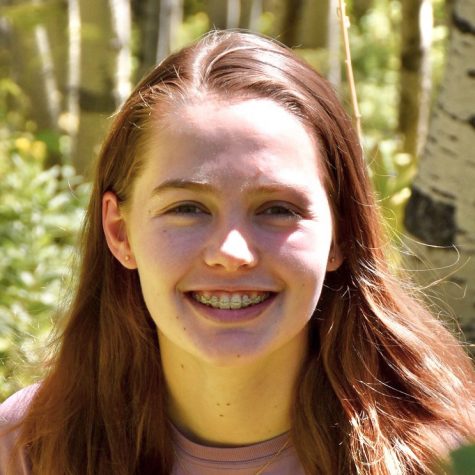
Elliote Muir is a senior and is very excited to join The Owl for her last year at Boulder High. Having loved creative writing since she was little, and as an avid skimmer of The New York Times, Elliote is thrilled to get the chance to learn more about journalism this year! When Elliote isn’t in school, you can find her captaining Boulder High’s mountain bike team, skiing, waiting for the next season of The Great British Bake Off to premiere, playing with her dog, and adventuring in the wilderness with friends and family. As a self-proclaimed foodie, Elliote loves cooking and baking (but mostly baking) and trying new foods. Her favorite food—okay, her favorite meal—is her dad’s homemade...


